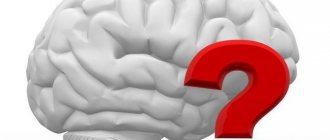Personality is formed under the influence of the environment, in the process of education and through various life situations. When does a person become a person?
The formation of a full-fledged personality continues and changes throughout life. The variety of life experiences is too great and the options are too individual and varied.
Therefore, the age at which a holistic personality is formed is individual. But, nevertheless, psychologists and scientists have identified basic, generalized age frameworks that reflect the main stages of personality formation. Let's look at them.
Infants(1-3 years)
The most rapid period of development, children at this age:
- absorb everything like a “sponge”;
- observe adults;
- repeat their habits, etc.
One of the most important stages, since it lays the foundation and largely determines what the individual will be like in the future. It is important for parents to show care and understanding, demonstrate patience and responsibility. The child becomes more “understanding”, but most of the time, still continues to be guided by basic instincts.
Man and personality
Concepts such as personality and man have a number of differences. A person is called a person from birth; this is more of a material characteristic. But personality, at its core, is a more complex concept. As a result of human development, his formation as an individual in society occurs.
Personality
- this is the moral side of a person, which implies all the diversity of qualities and values of the individual.
The formation of personal qualities is influenced by family, kindergartens and schools, social circle, interests, financial capabilities and many other factors, which will be discussed in more detail later.
Adolescence (12-16 years)
The teenager is faced with a feeling of loneliness and misunderstanding on the part of adults. One of the most difficult periods. It is important here that he has friends to whom he can tell things that he cannot talk about with adults. Also, children at this age begin to more or less decide what they want to do in life.
During this period, it is important to support initiative and allow the teenager to open up if he is interested in some (acceptable) activity (creativity, technology, etc.).
Concept by K. Obukhovsky
Of particular interest is the concept of personality formation and development, developed by the Polish psychologist K. Obukhovsky. This theory is less widely represented in the scientific literature than others, but this does not make it any less significant.
K. Obukhovsky proposes to consider four main conditions for the functioning of a formed personality, however, none of them is more important than the others; only the ability of an individual to fully fulfill all these conditions indicates its full development and formation.
- Growth of skill: throughout the life of each individual, a contradiction intensifies, expressed in the fact that the success achieved leads to an increase in the complexity of the tasks facing it, and the natural process of aging does not allow maintaining skills at the same level. Only a fully formed personality is able to maintain skills at the same level, which, in essence, consists of their constant improvement.
- The emergence of new features: these are new views, a different understanding of the world, a transition to a more abstract concept of the world and the study of new techniques of action.
- Feeling of life satisfaction: satisfaction is the overall positive background against which a person views his life; however, this does not exclude negative emotional states as adequate reactions to inevitable difficulties. At the same time, prolonged despair, which gives rise to new types of negative functioning, leads to the loss of the ability to develop.
- Ability to self-control; it requires special psychological conditions, qualities that are unique to man and relate to the world of human experiences, his most conscious inner experience. In addition, the ability to self-control follows from mental distance in relation to such mental characteristics as fear, love or guilt, which can control the personality regardless of intellectual prerequisites and modify its behavior in a way that is contrary to intentions.
Are you an expert in this subject area? We invite you to become the author of the Directory Working Conditions
Youth (16-23 years old)
An individual chooses a profession, studies, and begins to finally decide on his place in society. The main task:
- choosing and mastering your favorite activity;
- job search;
- making money;
- independence training;
- separation from parents (moving to another country/city for study/work, etc. can be useful).
It is important to close these aspects of life so that in the next stages the person can deal with others. The formation of the body gradually ends, and at the same time improvement occurs in the direction of cognitive abilities.
Driving forces of personality development
The driving forces of personality development are the contradictions that arise in the process of a person’s life. Such contradictions include:
- contradictions between new needs generated by activity and the possibilities of satisfying them;
- the contradiction between the increased physical and spiritual capabilities of the individual and the old, previously established forms of relationships and types of activity;
- contradictions between the growing needs of society, a group of adults and the current level of personal development.
The named contradictions are characteristic of all ages, but acquire specificity depending on the age at which they appear. Resolution of contradictions occurs through the formation of higher levels of activity. As a result, the personality moves to a higher stage of development. The need is satisfied, the contradiction is removed. But a satisfied need gives rise to a new need of a higher order. One contradiction gives way to another - development continues. In the process of training and education, general contradictions become more specific. These are contradictions between the requirements for students and their preparedness to perceive and implement these requirements; between educational influences and resistance to them.
Youth (23-30 years old)
The best period for finding a loved one, starting a family and having children. If the stage of separation from parents has not occurred, then this may be the last opportunity.
Either a person finds a soul mate and begins to live with her, or begins to earn enough to live separately. This is an important aspect, since a sense of independence and responsibility at this age will have a beneficial effect on the formation of self-esteem and personality as a whole.
The main factors of personality development
- Upbringing . Biologically inherited characteristics of an individual only create the ground for personality development. They develop under the influence of environment and education (one of the institutions of socialization). At birth, healthy people have relatively identical inclinations and capabilities. And only social inheritance, that is, the lifetime influence of environment and upbringing, ensures development. Education differs favorably from environmental factors in that it is a controlled process that regulates and deliberately creates conditions for development and adaptation. The main law of personality development, formulated by L.S. Vygotsky, means that through joint activity and communication, the child’s mental functions, social skills, ethical standards, self-awareness, etc. are formed. Education among all factors of socialization is interpreted as the most significant in the development of personality precisely because its direction and organization.
- Subject activity . Humanistic psychology (A. Maslow and others) argues that the formation of personality depends no less on the activity of the person himself. Activity is understood as everyone’s desire for self-actualization, knowledge of oneself and the higher meanings of existence, for self-realization, often in spite of the environment, which levels and suppresses individuality. A. Maslow, K. Rogers and others believe that helping a person, a school student, consists precisely in awakening his own aspirations for self-actualization, which, as they think, are initially inherent in him. In more traditional terms for domestic science, this position means that the activity of the student himself, his will, beliefs, activities for self-development and self-education are internal factors of personal development. These internal factors, in fact, acquired personality traits, parts of its structure, are formed under the influence of upbringing in the first place. But over the course of a child’s life, they themselves become the source, the driving force of his development. This partly explains that, under the influence of the same educational and environmental conditions, students grow up differently. This raises the question of the importance of self-education and its connection with education. Pedagogy understands it this way: education causes self-education, and the faster, the better.
Conclusions and advice
As was said from the very beginning, there is no end to this process, since we constantly have to face difficulties, changes of views, etc. The process is too individual, but in most cases, the main “skeleton” of the personality will be formed before the age of 23-25 years. Two main aspects will help shape your personality:
- Acceptance of all your strengths and weaknesses, as well as pushing aside the opinions of others and redirecting the focus to your own desires and needs;
- The desire to develop and try new things. Getting rid of the fear of learning something new for yourself (even if this “new” is a little uncomfortable).
That's all, we hope that the information was useful to you. Write in the comments what stage you are at now and what problems you have encountered.
Conditions for personality formation.
A person’s personality is formed and developed as a result of the influence of numerous factors, objective and subjective, natural and social, internal and external, independent and dependent on the will and consciousness of people acting spontaneously or according to certain goals. At the same time, the person himself is not thought of as a passive being who photographically reflects external influences. He acts as the subject of his own formation and development.
Bearing in mind that the human personality is formed in its unity by genetic and social programs, we note the existence of subjective
and
objective
conditions for the formation of personality, its improvement in the course of life, as well as as a result of development and upbringing.
Biological factors
: heredity (transmission from parents of psychophysiological properties and inclinations: hair color, eyes, skin, temperament, speed of mental processes, as well as the ability to speak, think, walk upright - universal human characteristics and national characteristics) largely determine the subjective conditions influencing the formation personality. The structure of the mental life of the individual and the mechanisms of its functioning, the processes of formation of both individual and integral systems of properties constitute the subjective world of the individual.
A person is a living organism, whose life is subject to both the general laws of biology and the special laws of anatomy and physiology. But it is not personality traits that are inherited, but certain inclinations. Inclinations are a natural disposition to a particular activity. There are two types of inclinations: universal (the structure of the brain, central nervous system, receptors); individual differences in natural data (features of the type of nervous system, analyzers, etc.).
Natural features determine different ways and methods of formation of mental properties. They can influence the level and height of a person’s achievements in any area. Moreover, their impact on the individual is not direct, but indirect. No congenital feature is neutral, since it is socialized and imbued with personal attitudes (for example, dwarfism, lameness, etc.). The role of natural factors varies at different age stages: the younger the age, the more natural characteristics affect the formation of personality.
Natural characteristics are important prerequisites, factors, but not driving forces in the formation of personality. The brain as a biological formation is a prerequisite for the emergence of consciousness, but consciousness is a product of human social existence. The more complex an education is in its mental structure, the less it depends on natural characteristics.
But the influence of biological factors is always mediated by training, upbringing and social conditions. The formation of personality occurs in unity with the objective conditions that influence it. Human mental activity, being determined by external conditions, develops according to its own specific internal laws. [5, 15c.] “Ideas, feelings and beliefs,” said G.V. Plekhanov, “are combined according to their own special laws. But these laws are put into action by external circumstances that have nothing in common with these laws.”[2, 113c.]
Social factors
(they are also “external circumstances”): socio-economic living conditions, family and purposeful upbringing form a system of objective conditions that influence the formation of personality. It is the environment - the entire social reality surrounding a person, in the conditions in which his development and formation of personality takes place - that is the objective condition for the formation of his personality, determining purely human inclinations - thinking and speech. Objective conditions make it possible to develop human inclinations through communication with people. Because if you isolate a child after birth from society, he will have character, temperament, abilities and a number of other personality properties, but he will not be a person, since he will develop outside of human relationships, human society.[16, 35c.]
Socialization
represents the process of personality formation, the gradual assimilation of the requirements of society, the acquisition of socially significant characteristics of consciousness and behavior that regulate its relationship with society. Socialization of the individual begins from the first years of life and ends by the period of civil maturity of a person, although, of course, the powers, rights and responsibilities acquired by him do not mean that the socialization process is completely completed: in some aspects it continues throughout life.
Socialization is carried out as a system of two interacting factors:
1) the impact of society on the individual in the process of upbringing, education, communication with parents, peers, in the process of using mass media sources of information;
2) own personal activity, manifested both in the deobjectification of phenomena and objects, and in their objectification.
Indeed, a social individual does not receive his social content hereditarily and is forced to acquire it in ontogenesis and throughout his life. [4, 198c.] Conventionally, the process of socialization has three periods:
- primary socialization, or socialization of the child;
- intermediate socialization, or socialization of a teenager;
- stable, holistic socialization, that is, the socialization of an adult, basically mature person.
Being an important factor influencing the mechanisms of personality formation, socialization presupposes the development in a person of his socially determined properties (beliefs, worldview, ideals, interests, desires).
Upbringing
also acts as an important factor in personality development. It ensures the socialization of the individual, programs the parameters of its development, taking into account the versatility of the influence of various factors. Education is a planned, long-term process of specially organized life for children in the conditions of education and upbringing. It has the following functions:
— diagnostics of natural inclinations, theoretical development and practical creation of conditions for their manifestation and development;
— organization of educational activities for children;
— the use of positive factors in the development of personality traits;
— content of education, means and conditions of the social environment;
— impact on social conditions, elimination and transformation (if possible) of negative environmental influences;
- the formation of special abilities that ensure the application of forces in various fields of activity: scientific, professional, creative-aesthetic, constructive-technical, etc.
So, a person always lives and acts as part of a certain nation, class, social group, collective and shares with others the material and cultural conditions of life and, which is quite natural, the psychology of the social group of which he is a member. This circumstance determines what is special in the mental appearance of the individual (national character traits, needs, interests, attitude towards various aspects of social life).
Psychological moment
Personality formation is determined by the microenvironment - part of the environment and the conditions in which a person lives directly (for example, family). The microenvironment objectively influences the mental appearance of a person. As a consequence of this influence, individually unique traits are discovered that reflect the specific life path of an individual.[18,111c.]
Consideration of the question of the influence of objective conditions on the formation of personality will be incomplete without noting the decisive importance of social heredity in human development.
Each person represents, to one degree or another, the entire human race; its human, bodily organization embodies the result of the development of not only the human race, but also its closest ancestors. The universal human natural organization of personality was formed according to the laws of biology, and therefore acts as a socially determined human nature.[5, 59c.]
A person inherits from previous generations the tools of labor and experience in organizing production, material and spiritual values, traditions, etc. By mastering all this, he joins the universal and national culture, becomes capable of work, creative development of the inheritance left to him.
What is the determining condition for a person’s involvement in social experience, forcing him to become a person?
K. Marx, defining the essence of man, writes that “it is the totality of all social relations.”[9, 25c.] The personality of a person as a member of society is in the sphere of influence of various relations, and, above all, relations that develop in the process of production and consumption of material and spiritual goods. These relationships are basic and decisive in the matter of introducing a person to social experience. Thus, we are talking about human needs. It is well known that needs lie at the core of human activity. M. S. Kagan called activity the way of human existence. It is activity that is designed to ensure the biological and socio-cultural life of a person.[4, 187c.] And it is in activity that a person reveals his special place in the world and asserts himself in it as a social being.
Activities cover material-practical, intellectual, spiritual operations, external and internal processes of society in general and individuals in particular. Thus, the activity
permeates the objective and subjective factors of personality formation, being at the same time a condition for the above factors. Since the main function of activity is to ensure the preservation and continuous development of human society, the complex set of various specific forms, intertwined with each other in the most bizarre way, is classified into four main types:
1) Transformative activity (labor) - all forms of human activity that lead to change, real or ideal, the creation of something that did not exist before. It was labor activity that was the determining condition for the formation of a person. The development of labor activity significantly changed the natural, biological organization of man and entailed the development of new human qualities.
2) Cognitive activity (comprehension of the essence of the object).
3) Value-oriented (a specific form of reflection by the subject of an object; objective-subjective information about values, and not about entities).
4) Communicative activity (communication) - the social nature of man makes communication between people a condition for work, cognition and the development of a value system. Communication is a type of activity that mediates the other three, but is also generated and stimulated by them. [4, 250-257c.]
The process of personality formation is carried out thanks to the unification of types of activities, when each of the listed types, being relatively independent, includes three others. Through such a set of activities, the mechanisms of personality formation and its improvement in the course of a person’s life operate.
Personality arises in society. A person enters history (and a child enters life) as an individual endowed with certain natural properties and abilities, and he becomes a person only as a subject of social relations. In other words, unlike the individual, personality is in no sense pre-existing in relation to human activity, just as his consciousness and personality are generated by activity. The study of the process of generation and transformation of a person’s personality in his activities taking place in specific social conditions is the key to a true scientific understanding of personality.[6, 91c]
The process of formation of a person’s personality begins from the first years of his life. And, as already noted, the processes of personality transformation are carried out in activity, or rather, in a complex set of its various forms. At the same time, a certain period of human life corresponds to a type of activity, the development of which determines the most important changes in mental processes and in personality characteristics during a given period of development. From birth to death, a person’s entire life changes depending on the leading activity that is assigned to him by society and which the person masters.
Emphasizing the importance of activity in the mechanisms of personality formation, we will highlight its leading type in different age periods of a person, based on the classification of types of activity by M. S. Kagan, and also note the subject-object nature of the processes of formation and development of personality.
Up to one year is infancy. The leading type of activity is direct emotional communication. Objective factors play a decisive role in the mechanisms of personality formation, namely, the child’s immediate environment—the microenvironment.
From one to three years - early childhood. The leading type of activity is object-manipulative, combining cognitive and communicative types of activity. As before, objective conditions remain the most influential - the environment, which, however, is no longer limited to only the microenvironment (family). The influence of the environment on the individual is carried out mainly through education. It is at this time that the period of socialization begins, when the child, through communication with adults, understands for himself what is possible, what is not, what is needed, what should be. Thanks to object-manipulative activities, the child masters socially developed ways of using objects.
From three to seven years old - preschooler. The leading type of activity is play. This is a completely special type of activity, directly or indirectly related to all main activities. The game helps children master the methods of practical and mental activity developed by humanity, and the assimilation of moral norms of relationships between people. The game always develops and improves under the guidance of adults, so the decisive role of objective conditions in the formation of personality remains. However, the emerging and developing trend towards independence creates conditions for the manifestation of the subjective factor, as evidenced by the development of consciousness and self-awareness. In this age period, namely by 4-5 years, the main personality traits are already being laid.
Seven - eleven years old - junior schoolchild; twelve - fifteen years old - teenager. The leading type of activity is cognitive (educational) and communicative (communication). The objective conditions for the formation of personality are influential, realized through the institutions of family and school through the purposeful organization of development, training and education systems. Further formation of consciousness and self-awareness occurs, which is a powerful incentive for the intervention of subjective factors in the mechanisms of personality formation. The problem of self-improvement begins to come to the fore. Public institutions (in particular, school) play an important role in a person’s self-knowledge and self-education, since society is ultimately interested in a person focused on his own comprehensive development as an end in itself.
Fifteen to eighteen years old is early adolescence. The age of civic maturity, as evidenced by readiness for work, self-education, family life and the ability to conduct research. The leading type is educational and professional activity as a type of cognitive activity. There is an appeal of the individual to universal human motives and values. A person seriously thinks about choosing a profession and consciously shapes his character. The beginning of independent labor activity dates back to this period. Subjective conditions become decisive in the process of personality formation.
Further, without indicating a specific age period of a person, we generally mean maturity, corresponding to the third period of socialization. Education is completed, a profession has been chosen, a place in life has been determined, a relatively stable and harmonious system of views has already developed, the ability to control oneself, and sense the environment. The leading activity is transformative. The problem of self-realization arises, the solution of which mainly depends on the personality itself - an active being, penetrating deeper and deeper into reality, cognizing and, at the same time, remaking it. [4, 298c.] Personal self-realization, self-improvement and self-development are determined, that is, determined by the needs of the individual’s life and activities in society. The public and the personal mutually penetrate each other, forming an organic unity. The development of society is impossible without increasing demands on each individual and without self-education that realizes these demands. It is clear that personal self-improvement plays a big role in the life of society, in the all-round development of a person who is able to make maximum use of objective conditions and subjective forces.
Thus, personality formation is a complex, long-term process determined by socialization, in which external influences and internal forces, constantly interacting, change their role depending on the stage of development. The basis of personality is the totality of its relations to the world, which are social in nature, but relations that are realized; and they are realized by its activities, or more precisely, by the totality of its diverse activities.
Conclusion
The problem of personality formation is an immense, significant and complex problem, covering a huge field of research.
Personality is a person taken in the system of his psychological characteristics that are socially conditioned, manifest themselves in social connections and relationships by nature, are stable, determine the moral actions of a person that are of significant importance for himself and those around him.
Personality is something unique that is associated, firstly, with its hereditary characteristics and, secondly, with the unique conditions of the microenvironment in which it is nurtured. Every born child has a brain and a vocal apparatus, but he can learn to think and speak only in society. Of course, the continuous unity of biological and social qualities shows that man is a biological and social being. Developing outside of human society, a creature with a human brain will never become even a semblance of a person.
Only by characterizing the main forces influencing the formation of personality, including the social direction of education and public upbringing, that is, by defining a person as an object of social development, can we understand the internal conditions of his formation as a subject of social development. In this sense, a person is always historical, she is a product of her era and the life of her country, a contemporary and participant in the events that make up the history of society and her own life path.
So, personality formation is a very complex process that lasts our entire life. Some personality traits are already inherent in us at birth (a biological factor in personality development), while others we develop in the course of our lives. And the environment helps us with this. This is a complex, long-term process determined by socialization, in which external influences and internal forces, constantly interacting, change their role depending on the stage of development. The basis of personality is the totality of its relations to the world, which are social in nature, but relations that are realized; and they are realized by its activities, or more precisely, by the totality of its diverse activities. A person’s personality is formed and develops as a result of the influence of numerous factors, objective and subjective, internal and external, social and psychological.
A little about socialization
So, what stages does a personality go through in the process of its formation? There are several theories that try to provide an answer. Each of them, for the most part, does not contradict the others. At the same time, each psychological school looks at human socialization from its own angle. Some people view it from the perspective of social groups. This is the name of an association of people who have common goals and values. Society can also be called a social group. Only in this case can it be considered a large association. There is no particular difference what stages a person goes through in the process of formation. The important thing is that the end point is almost always known. Naturally, the socialization process may not work out. In this case, the person may be considered marginal or a desocialized person.










